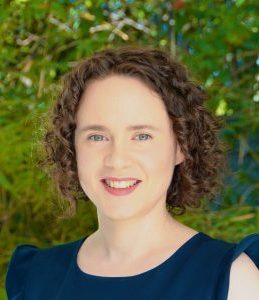
Denis Bauer, PhD
Adjunct Associate Professor, Macquarie University
Denis Bauer, PhD
Adjunct Associate Professor, Macquarie University
 Dr Denis Bauer is an internationally recognised expert in bioinformatics and artificial intelligence, who is passionate about improving health by understanding the secrets in our genome using cloud-computing technology. She is an adjunct associate professor at Macquarie University and AWS Data Hero. Her achievements include developing an open-source, artificial intelligence-based cloud-service that accelerates disease research and contributing to national and international initiatives for genomic medicine funded with over $500M. In 2020 she won the CSIRO Collaboration Medal for her work analyzing COVID-19 genome for vaccine development and molecular contact tracing.
Dr Denis Bauer is an internationally recognised expert in bioinformatics and artificial intelligence, who is passionate about improving health by understanding the secrets in our genome using cloud-computing technology. She is an adjunct associate professor at Macquarie University and AWS Data Hero. Her achievements include developing an open-source, artificial intelligence-based cloud-service that accelerates disease research and contributing to national and international initiatives for genomic medicine funded with over $500M. In 2020 she won the CSIRO Collaboration Medal for her work analyzing COVID-19 genome for vaccine development and molecular contact tracing.
As CSIRO’s transformational bioinformatics leader, Denis is frequently invited as a keynote speaker at international medical and IT conferences including Amazon Web Services global Healthcare & Life Science Day ’21, International Research Software Engineering Conference ’20, Enactus World Cup 2020, International conference on Frontotemporal Dementia ‘18. Her revolutionary achievements have been featured in the press such as The Australian, The Australian Financial Review, Sydney Morning Herald, The Mandarin, Australian Institute of Company Directors Magazine, GenomeWeb, ZDNet, Computer World, CIO Magazine, the AWS Jeff Barr blog, and was in ComputerWeekly’s Top 10 IT stories of 2017.
Denis holds a BSc from Germany and PhD in Bioinformatics from the University of Queensland, and has completed postdoctoral research in both biological machine learning and high-throughput genetics. She has 47 peer-reviewed publications (23 as first or senior author), with over 2000 citations and an H-index 20.
Denis advocates for gender equality in IT, and is active on CSIRO’s Inclusion and Diversity committee.
Webpage: https://bioinformatics.csiro.au/
Twitter: https://twitter.com/allPowerde
LinkedIN: https://www.ßlinkedin.com/in/denisbauer/

Philip John (PJ) Brooks, PhD
Program Officer, Division of Clinical Innovation and Office of Rare Diseases Research, NCATS, NIH
Philip John (PJ) Brooks, PhD
Program Officer, Division of Clinical Innovation and Office of Rare Diseases Research, NCATS, NIH

Philip John (P.J.) Brooks joined the NCATS Office of Rare Diseases Research as a program director in August 2018. Prior to that time, he was in the NCATS Division of Clinical Innovation, where he was the lead program director for the Clinical and Translational Science Awards (CTSA) Program Collaborative Innovation Awards, designed to fund projects that will result in novel and creative approaches to overcoming roadblocks in translational science (PAR-18-244 and PAR-18-245). Brooks represents NCATS on the Trans-NIH Gene Therapy Working Group, and the Regenerative Medicine Innovation Project, and he also is the Working Group Coordinator for the NIH Common Fund program on Somatic Cell Genome Editing. Brooks recently was elected as the chair of the Interdisciplinary Scientific Committee of the International Rare Diseases Research Consortium(link is external).
Brooks received his doctorate in neurobiology from the University of North Carolina at Chapel Hill. After completing a postdoctoral fellowship at the Rockefeller University, Brooks became an investigator in the intramural program of the National Institute on Alcohol Abuse and Alcoholism. He developed an internationally recognized research program focused on two distinct areas: the molecular basis of alcohol-related cancer, and rare neurologic diseases resulting from defective DNA repair, including xeroderma pigmentosum, Cockanye syndrome and Fanconi anemia.

Chung-Hung Chan, PhD
Director, Special Projects, Sanford Research; Director, Sanford BioBank
Chung-Hung Chan, PhD
Director, Special Projects, Sanford Research; Director, Sanford BioBank
Chun-Hung Chan is Director of Special Projects at Sanford Research and Director of the Sanford BioBank. Dr. Chan received his PhD in Developmental Neurobiology from University College London, UK. He completed postdoctoral training in the laboratory of Dr. David A. Pearce at the University of Rochester studying rare childhood neurological diseases. He continued his research in rare diseases after moving to Sanford Research in 2009 with Dr. Pearce. In 2011, he established the Sanford BioBank, a population-based biorepository to support research as a first step towards integrating genomics with clinical care. Dr. Chan was also instrumental in developing the initial precision medicine program in oncology through his participation and leadership in genomics-based clinical trials, and helped to establish the Sanford Imagenetics initiative that aims to incorporate genetics into primary care.

Lynsey Chediak, MS
Lead, Global Health, World Economic Forum
Lynsey Chediak, MS
Lead, Global Health, World Economic Forum
 Lynsey is the former Founder and CEO of a patient advocacy non-profit where she implemented new models for increased patient engagement and support across hospital systems in the US. She wrote public health policy in the California Governor’s Office including a campaign to get calorie counts on restaurant menus state-wide and health policy in the UK’s Parliament, House of Commons, expanding minimum length of care for paediatric rare disease patients in the National Health Service (NHS). She also co-led a digital media start-up providing branding and marketing services as one of 100 entrepreneurs in the USA selected to complete the Venture for America Fellowship. Lynsey holds a BA from Claremont McKenna College and MSc from the London School of Economics and Political Science. Lynsey is a rare disease patient, an active patient advocate, and a spokesperson for Shriners Hospitals for Children, Northern California.
Lynsey is the former Founder and CEO of a patient advocacy non-profit where she implemented new models for increased patient engagement and support across hospital systems in the US. She wrote public health policy in the California Governor’s Office including a campaign to get calorie counts on restaurant menus state-wide and health policy in the UK’s Parliament, House of Commons, expanding minimum length of care for paediatric rare disease patients in the National Health Service (NHS). She also co-led a digital media start-up providing branding and marketing services as one of 100 entrepreneurs in the USA selected to complete the Venture for America Fellowship. Lynsey holds a BA from Claremont McKenna College and MSc from the London School of Economics and Political Science. Lynsey is a rare disease patient, an active patient advocate, and a spokesperson for Shriners Hospitals for Children, Northern California.
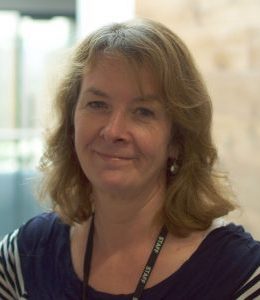
Andrea Haworth, MS
Lead Clinical Scientist, Rare Disease, Congenica
Andrea Haworth, MS
Lead Clinical Scientist, Rare Disease, Congenica
 Andrea is a UK state registered Clinical Scientist, a Fellow of the Royal College of Pathologist and has over two decades experience in clinical genetics/genomics in the UK. Previously specialising in neurogenetics as laboratory lead at University College Hospitals London she joined Congenica Ltd in 2015 as one of the first members of the company and built a team of scientists providing clinical and scientific knowhow to support the development of the company’s eponymous gold standard clinical decision support platform.
Andrea is a UK state registered Clinical Scientist, a Fellow of the Royal College of Pathologist and has over two decades experience in clinical genetics/genomics in the UK. Previously specialising in neurogenetics as laboratory lead at University College Hospitals London she joined Congenica Ltd in 2015 as one of the first members of the company and built a team of scientists providing clinical and scientific knowhow to support the development of the company’s eponymous gold standard clinical decision support platform.
As part of the Congenica leadership team that successfully tendered for the UK 100,000 Genomes project her team delivered the analysis, clinical interpretation, and results for the first 2000 families undergoing WGS and continues to support the delivery of this groundbreaking project as it has transitioned from translational research to a nationwide clinical service. As Lead Clinical Scientist for Rare Disease at Congenica she continues to be instrumental in establishing innovative clinical and scientific partnerships to assist clinical and commercial partners in the development and delivery of new genomic services for previously underserved patient populations.
An honorary Lecturer at St George’s University of London Medical school her scientific interests includes neurodevelopmental disorders and prenatal genomics.

Arthur Hermann, MS
Principal, Health IT Strategy and Policy, Kaiser Permanente
Arthur Hermann, MS
Principal, Health IT Strategy and Policy, Kaiser Permanente
 Arthur has long been employed by Kaiser Permanente, the largest integrated care organization in the U.S., which provides all insurance, hospital, and healthcare services to over 12 million members.
Arthur has long been employed by Kaiser Permanente, the largest integrated care organization in the U.S., which provides all insurance, hospital, and healthcare services to over 12 million members.
Arthur is a technologist with over 20 years of experience in Health Information Technology, including Enterprise Architecture and developing the infrastructure for Service Oriented Architecture (SOA)/APIs, which are used at Kaiser Permanente to move millions of messages per week. Most recently, Arthur has been working on Precision Medicine strategies, data management, and technology.
As part of the Health IT Strategy and Policy Team, he helps coordinate public policy advocacy to ensure that Kaiser Permanente speaks with one voice and ensures appropriate KP representation and influence in technical trade associations and industry standards bodies. Arthur is a voting member of the HL7/FHIR Clinical Genomics Work Group. Arthur was a Fellow to the World Economic Forum in San Francisco for 18 months (finishing early April 2020) , with a focus on Precision Medicine and Health Data.

Jeanette McCarthy, MPH, PhD
Senior Director, Scientific Programs, Fabric Genomics
Jeanette McCarthy, MPH, PhD
Senior Director, Scientific Programs, Fabric Genomics
 Jeanette McCarthy is a genome scientist and educator working at the forefront of precision medicine implementation. As a faculty member at Duke University, she ran research programs on genetic underpinnings of complex diseases, both infectious and chronic. In 2013 she founded Precision Medicine Advisors, an education and consulting business focused on communicating genomics to non-technical audiences, including health care providers, patients and other stakeholders. Jeanette has worked with Fabric Genomics since 2013 on the development of software for genome analysis and variant interpretation and currently leads scientific programs and clinical services. Jeanette is coauthor of the book, Precision Medicine: A Guide to Genomics in Clinical Practice (2016, McGraw Hill Education).
Jeanette McCarthy is a genome scientist and educator working at the forefront of precision medicine implementation. As a faculty member at Duke University, she ran research programs on genetic underpinnings of complex diseases, both infectious and chronic. In 2013 she founded Precision Medicine Advisors, an education and consulting business focused on communicating genomics to non-technical audiences, including health care providers, patients and other stakeholders. Jeanette has worked with Fabric Genomics since 2013 on the development of software for genome analysis and variant interpretation and currently leads scientific programs and clinical services. Jeanette is coauthor of the book, Precision Medicine: A Guide to Genomics in Clinical Practice (2016, McGraw Hill Education).
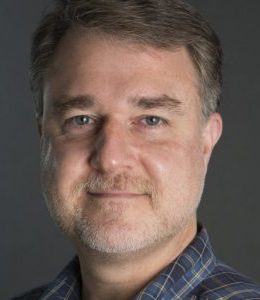
CJ Malanga, MD, PhD
Global Clinical Lead, Rare Diseases, Takeda
CJ Malanga, MD, PhD
Global Clinical Development Lead for MLD Takeda Rare Genetics and Hematology (RGH), Takeda
 C.J. Malanga MD, PhD, a Pediatric Neurologist and Neuropharmacologist, is the Global Clinical Development Lead for metachromatic leukodystrophy (MLD) with Takeda Pharmaceuticals, based in Cambridge, Massachusetts. Previously, C.J. was with the Novartis Institutes for BioMedical Research (NIBR) in Translational Medicine/Neurosciences, focusing on early clinical drug development and novel digital and physiometric study endpoints, particularly in children. Prior to joining NIBR, C.J. was an Associate Professor of Neurology, Pediatrics, and Psychology at the University of North Carolina at Chapel Hill, where he specialized in neurodevelopmental disorders and movement disorders in children.
C.J. Malanga MD, PhD, a Pediatric Neurologist and Neuropharmacologist, is the Global Clinical Development Lead for metachromatic leukodystrophy (MLD) with Takeda Pharmaceuticals, based in Cambridge, Massachusetts. Previously, C.J. was with the Novartis Institutes for BioMedical Research (NIBR) in Translational Medicine/Neurosciences, focusing on early clinical drug development and novel digital and physiometric study endpoints, particularly in children. Prior to joining NIBR, C.J. was an Associate Professor of Neurology, Pediatrics, and Psychology at the University of North Carolina at Chapel Hill, where he specialized in neurodevelopmental disorders and movement disorders in children.

Matt Might, PhD
Professor, Internal Medicine and Computer Science; Hugh Kaul Endowed Chair, Personalized Medicine; Director, Hugh Kaul Precision Medicine Institute
Matt Might, PhD
Professor, Internal Medicine and Computer Science; Hugh Kaul Endowed Chair, Personalized Medicine; Director, Hugh Kaul Precision Medicine Institute

Matt Might has been the Director of the Hugh Kaul Precision Medicine Institute at the University of Alabama at Birmingham (UAB) since 2017. At UAB, Matt is the Hugh Kaul Endowed Chair of Personalized Medicine, a Professor of Internal Medicine and a Professor of Computer Science.
From 2016 to 2018, Matt was a Strategist in the Executive Office of the President in The White House. In 2015, Matt joined the faculty of the Department of Biomedical Informatics at the Harvard Medical School, first as Visiting Professor and since 2017 as Senior Lecturer.
Matt is co-founder and Chief Scientific Officer of NGLY1.org, and he was a co-founder and Scientific Advisor to Pairnomix. Q State Biosciences acquired Pairnomix in October 2018 and Matt remains a Scientific Advisor and Board Member.
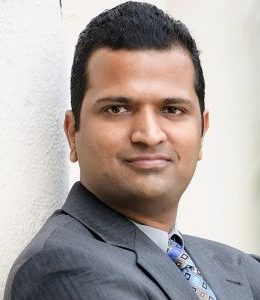
Harsha Rajasimha, PhD, MS
Founder & Chairman, Indo US Organization for Rare Diseases; Founder and Chief Executive Officer, Jeeva Informatics Solutions Inc.
Harsha Rajasimha, PhD, MS
Founder & Chairman, Indo US Organization for Rare Diseases; Founder & Chief Executive Officer, Jeeva Informatics Solutions Inc.

Harsha is a genomics data scientist by training with over 16 years of experience in the precision medicine space in academic, the National Institutes of Health, healthcare and life science consulting and multiple startups focused on accelerating the development of diagnostics and therapies for rare & common diseases. He brought together a team of social entrepreneurs in cofounding the organization for rare diseases India in 2014.
At IndoUSrare, Harsha’s vision is to champion US-India collaborations to accelerate therapies for rare diseases. At Jeeva, Harsha is pioneering patent-pending scalable human-centric clinical research software technology platforms. Harsha has authored 17+ publications, book chapters, and patents. He is a frequent speaker, convener of meetups, panel discussions, and part of conference organizing committees. Harsha has received numerous Awards for his work in genomics, precision medicine and rare diseases including a travel award to join the NGO Committee on Rare Diseases at the United Nations headquarters, New York City in Feb 2019, Lead India Foundation 2020 Award for leadership and outstanding achievement in rare diseases, NTT DATA Healthcare Life Sciences Silver award for outstanding achievement 2017, Sanofi Genzyme patient advocacy leadership award 2016, Bioscience company of the year 2014, NEI director’s innovation award 2012 for building their genomics cyber infrastructure. Harsha earned his M.S. in Computer Science (2004) and Ph.D. in Genetics, Bioinformatics and Computational Biology (2007) from Virginia Tech.

Sridhar Sivasubbu, PhD
Senior Principal Scientist, Head, Business Development,
CSIR- Institute of Genomics and Integrative Biology (CSIR-IGIB), Delhi, India
Sridhar Sivasubbu, PhD
 Senior Principal Scientist; Head, Business Development;
Senior Principal Scientist; Head, Business Development;
CSIR- Institute of Genomics and Integrative Biology (CSIR-IGIB), Delhi, India
Dr. Sridhar Sivasubbu is a Senior Principal Scientist at the CSIR-Institute of Genomics and Integrative Biology (IGIB), Delhi, India. His research interests are focused on sequencing human genomes for adoption and benefit in healthcare with applications in rare genetic disorders. He also develops zebrafish models for application in precision medicine in humans. His laboratory also explores non-coding RNA mediated regulation of vascular development and diseases, wherein his group is credited with the discovery of a number of non-coding RNAs.
Dr. Sivasubbu co-founded the Genomics for Understanding Rare Disease: India Alliance Network (GUARDIAN), which is one of the largest precision medicine ecosystem in India working on rare genetic diseases. He also served as the chief scientific officer of The Center for Genomic Application; a Public-Private partnership company established by IGIB. Dr. Sivasubbu completed his PhD from M.S University, India, and postdoctoral research from the CSIR-Center for Cellular and Molecular Biology, India and the University of Minnesota, USA, with specializations in genetics and genomics.
Major Research Areas
- Personalized and precision medicine in humans.
- Developing zebrafish models for application in precision medicine.
- Elucidating non-coding RNA mediated regulation of Vascular and Cardiovascular development and diseases.
Technology Commercialization
2 Technologies & 28 Molecular diagnostic assays
Publications
116 Complete list of publication is available at: https://www.ncbi.nlm.nih.gov/pubmed/?term=Sridhar+Sivasubbu
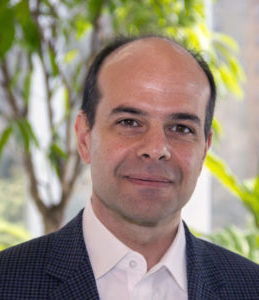
Dietrich Stephan, PhD
Chief Executive Officer, NeuBase Therapeutics
Dietrich Stephan, PhD
Chief Executive Officer, NeuBase Therapeutics
 Dr. Dietrich Stephan is an industry veteran who is considered one of the fathers of the field of precision medicine, having trained with the leadership of the Human Genome Project at the NIH and then going on to lead discovery research at the Translational Genomics Research Institute and serve as professor and chairman of the Department of Human Genetics at the University of Pittsburgh. Stephan has published extensively in journals such as Science, the New England Journal of Medicine, Nature Genetics, PNAS and Cell. In parallel, Dr. Stephan has founded or co-founded 14 biotechnology companies and has advised an additional 12 companies. These companies are backed by the top-tier investors such as Sequoia Capital, KPCB, Thiel Capital, and Mayo Clinic Ventures as well as corporate partners such as Life Technologies, Pfizer, and Mayo Clinic. Dr. Stephan received his Ph.D. from the University of Pittsburgh and his BS from Carnegie Mellon University.
Dr. Dietrich Stephan is an industry veteran who is considered one of the fathers of the field of precision medicine, having trained with the leadership of the Human Genome Project at the NIH and then going on to lead discovery research at the Translational Genomics Research Institute and serve as professor and chairman of the Department of Human Genetics at the University of Pittsburgh. Stephan has published extensively in journals such as Science, the New England Journal of Medicine, Nature Genetics, PNAS and Cell. In parallel, Dr. Stephan has founded or co-founded 14 biotechnology companies and has advised an additional 12 companies. These companies are backed by the top-tier investors such as Sequoia Capital, KPCB, Thiel Capital, and Mayo Clinic Ventures as well as corporate partners such as Life Technologies, Pfizer, and Mayo Clinic. Dr. Stephan received his Ph.D. from the University of Pittsburgh and his BS from Carnegie Mellon University.

Chirag Trivedi, PhD
Senior Director and Head of Clinical Study – India and South East Asia, Sanofi
Chirag Trivedi, PhD
Senior Director and Head of Clinical Study – India and South East Asia, Sanofi
 Dr. Chirag Trivedi is the Senior Director and Head of Clinical Study Unit India and South East Asia Cluster at Sanofi. He oversees clinical studies in India, Singapore, Malaysia, Thailand, Indonesia, Philippines, Bangladesh, Sri Lanka and Vietnam.
Dr. Chirag Trivedi is the Senior Director and Head of Clinical Study Unit India and South East Asia Cluster at Sanofi. He oversees clinical studies in India, Singapore, Malaysia, Thailand, Indonesia, Philippines, Bangladesh, Sri Lanka and Vietnam.
Dr. Trivedi served two terms as President of the Indian Society for Clinical Research (ISCR) (April 2017-March 2021). As a Society, ISCR brings together those engaged in clinical research activities in India and provides a forum for exchange of information and learning. ISCR aims to build awareness of clinical research as a specialty in India and to facilitate its growth in the country while helping to evolve the highest standards of quality and ethics.
Dr Trivedi is experienced in the fields of Clinical Research, Clinical Quality Assurance, Medical Excellence, Pharmacovigilance, Bioavailability & Bioequivalence Studies, and Business Development. He was nominated by the University of Mumbai as an outside examiner for the PhD (Tech) and Masters in Pharmaceutical Sciences Examination. Dr. Trivedi holds a PhD in Pharmacology.

Christina Waters, PhD, MBA
Chief Executive Officer and Founder, RARE Science
Christina Waters, PhD, MBA
Chief Executive Officer and Founder, RARE Science
 Christina Waters has been responsible for leading medical research in a broad range of organizations ranging from academia and disease – focused non-profits to biotech and large pharmaceutical companies. Her broad range of experience in basic, translational, and clinical research and business strategies converge to specialize in the development of new approaches to personalized medicine and health, creation of synergistic partnerships and implementation of new innovative research initiatives.
Christina Waters has been responsible for leading medical research in a broad range of organizations ranging from academia and disease – focused non-profits to biotech and large pharmaceutical companies. Her broad range of experience in basic, translational, and clinical research and business strategies converge to specialize in the development of new approaches to personalized medicine and health, creation of synergistic partnerships and implementation of new innovative research initiatives.
She is CEO and Founder of RARE Science, a non-profit research organization that enables the rare scientific research community to accelerate discovery of therapeutic solutions for patients with rare disease. In addition, she serves as a Scientific Advisory board member, for Global Genes|Rare Project, which focuses on advocacy and education for the rare disease community and as a Senior Advisor for Personalized Medicine and Health Informatics for Pricewaterhouse Coopers’ Personalized Medicine and Health Sciences Practices serving academic and research organizations across the healthcare continuum.
Dr. Waters received her Ph.D. in Genetics from the University of California, Davis as a NIH Biotechnology Fellow. She was a Postdoctoral Scholar and Associate of the Howard Hughes Medical Institute in the Division of Biology, California Institute of Technology. Dr. Waters also completed an NIH Postdoctoral fellowship at University of California, Berkeley, and received a Bachelor of Science in Biology from San Diego State University. Dr. Waters received her MBA from University of California, Los Angeles.
